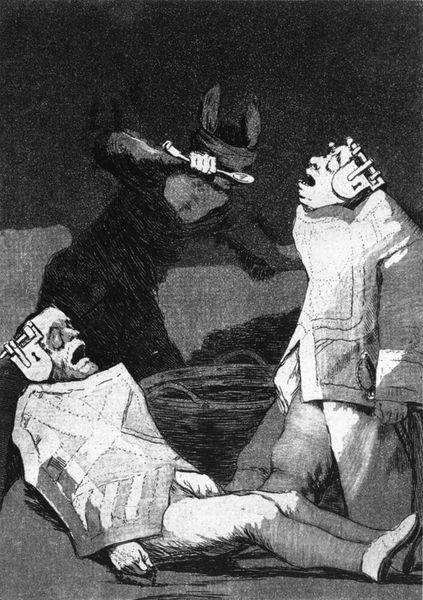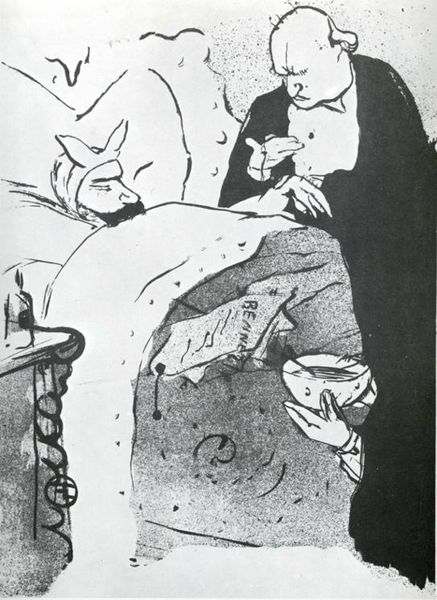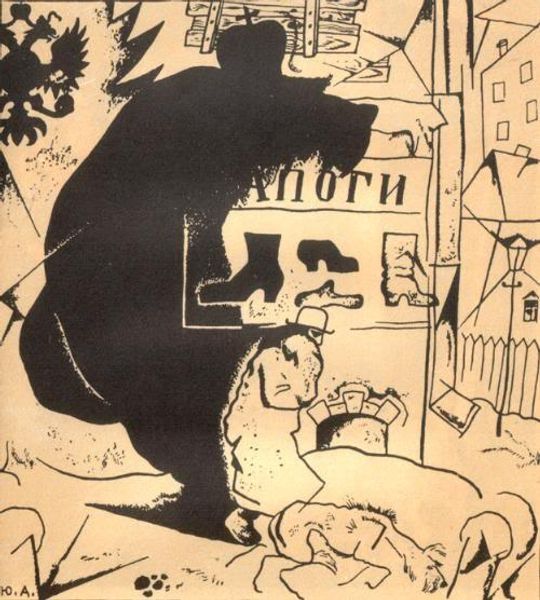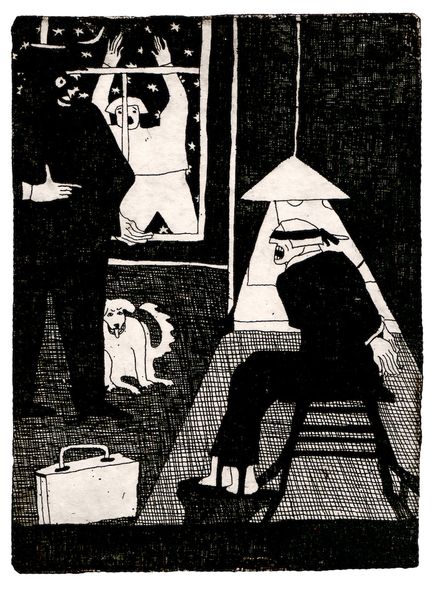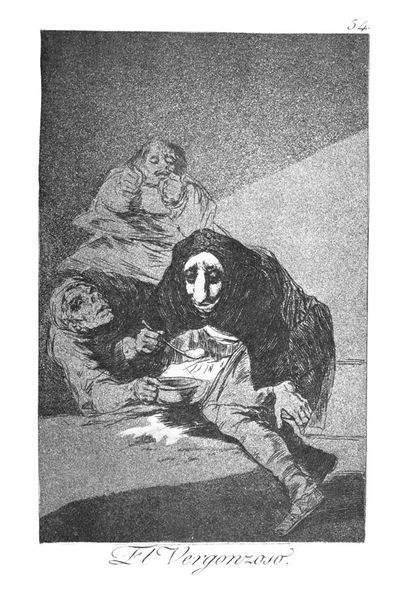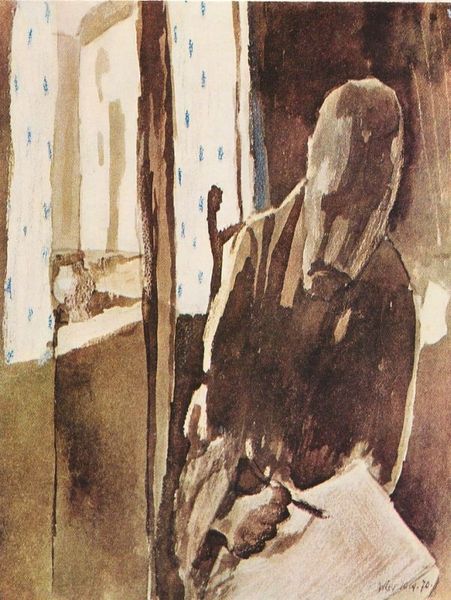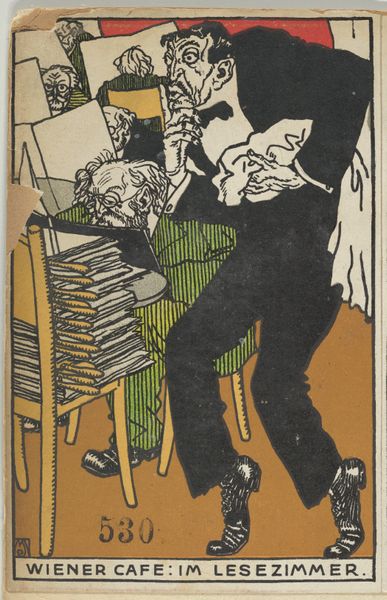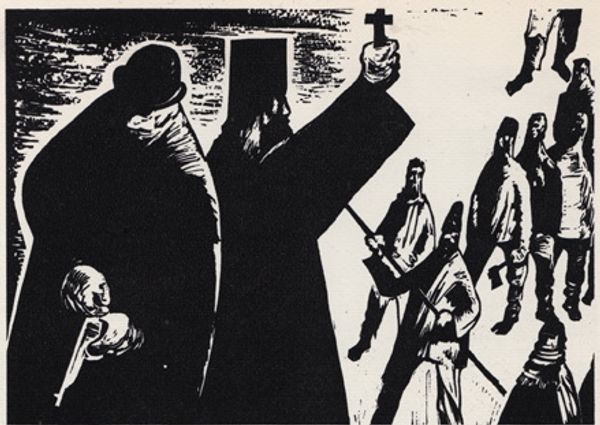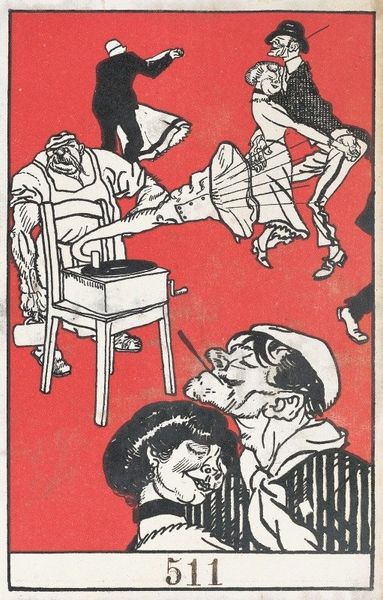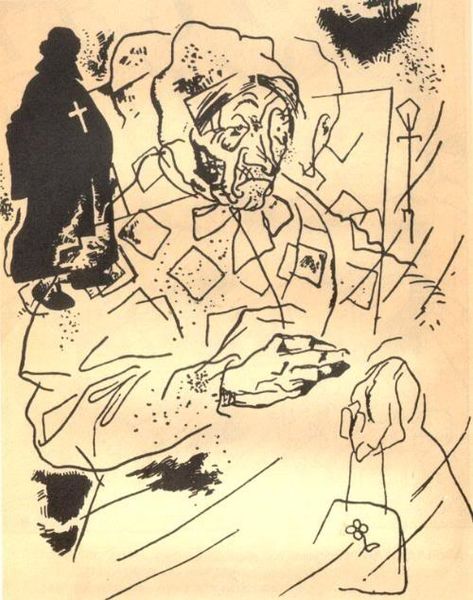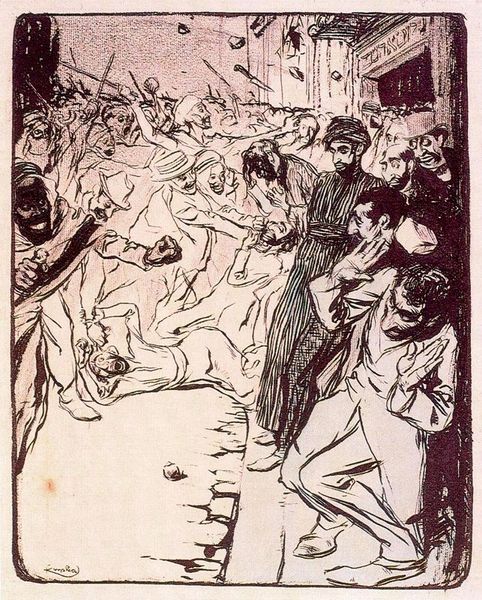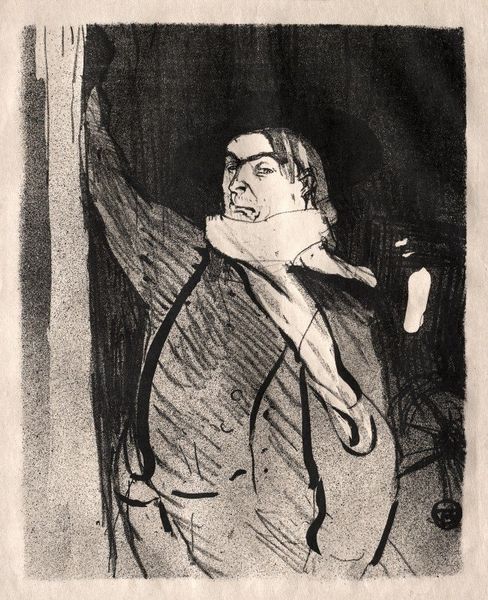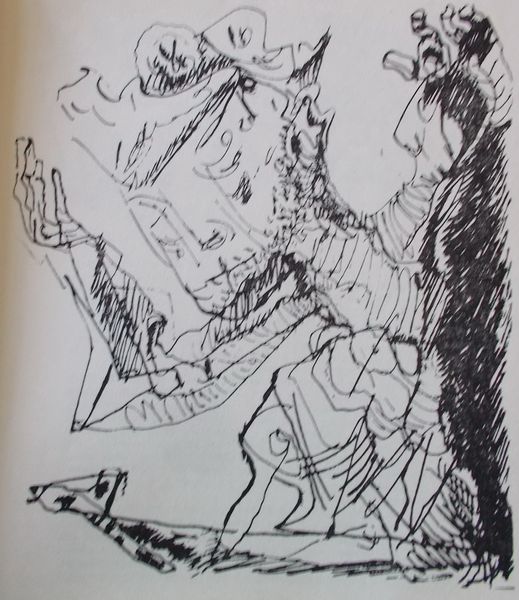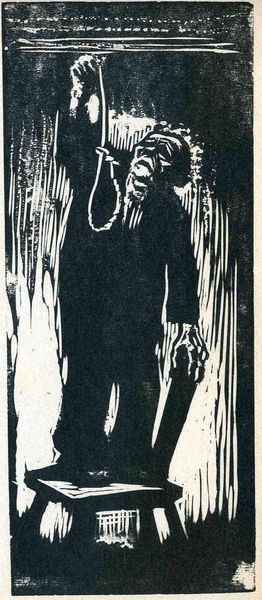
Dimensions: 58.5 x 45 cm
Copyright: Public domain
Henri de Toulouse-Lautrec made this painting called "The Last Drop" using oil on cardboard. It depicts a scene imbued with a sense of finality, possibly alluding to mortality and self-destruction. Painted in the bohemian atmosphere of late 19th-century France, the image evokes a feeling of melancholy. The skull and crossbones motif and the shadowy figure in the background suggest a confrontation with death. It seems that Toulouse-Lautrec, himself plagued by health issues and alcoholism, may be commenting on the social dynamics of his time, where excess and indulgence were rampant within artistic circles. Was he critiquing the self-destructive tendencies of his peers, or perhaps offering a self-portrait of his own struggles? To understand this work more deeply, we can look at the social and cultural context of Montmartre, the artistic hub of Paris at that time, and consider the artist's biography. Such study reveals the rich layers of meaning embedded in this seemingly simple image.
Comments
No comments
Be the first to comment and join the conversation on the ultimate creative platform.
